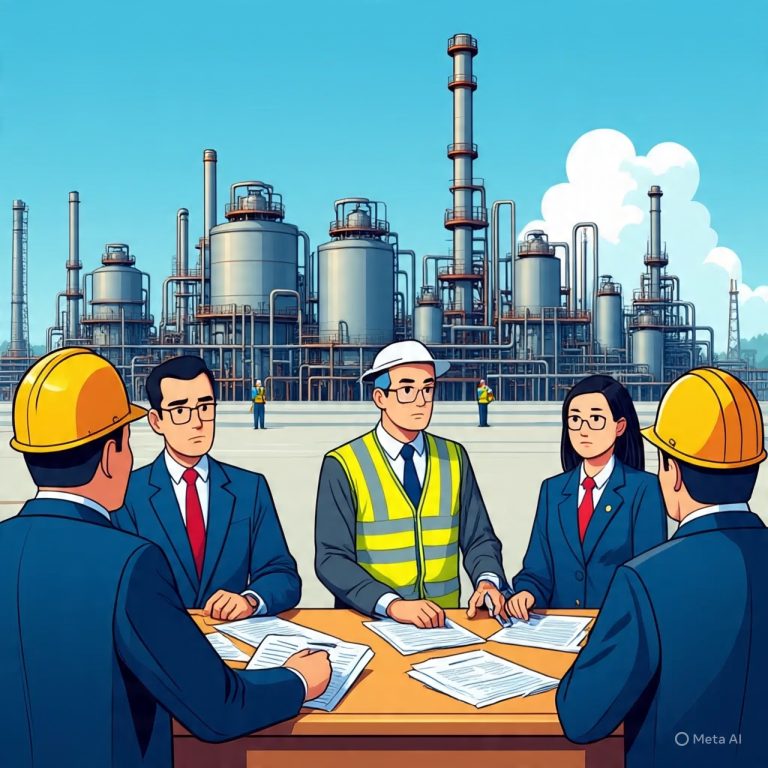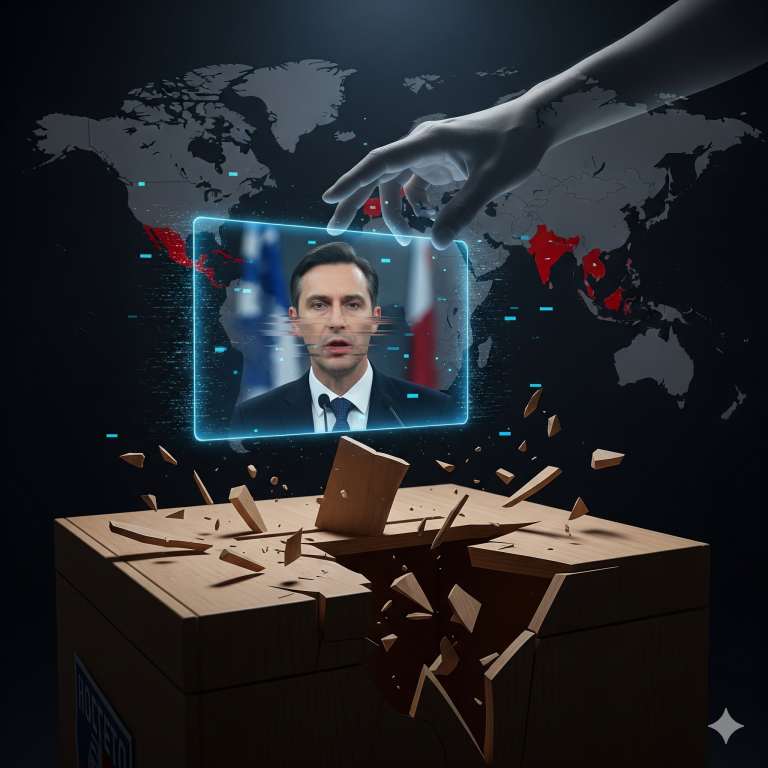
Battle for Democracy
The Rise of Strongmen: Why More Leaders Are Grabbing Power

In recent years, more leaders around the world have been taking more control, limiting freedoms, and staying in power longer. These “strongmen” leaders promise stability and security, but often at the cost of democracy. They weaken independent courts, silence journalists, and change laws to benefit themselves.
People sometimes support them because they feel frustrated with the government or worried about the future. Strong leaders offer simple solutions to complex problems, making them appealing in times of crisis. Social media and propaganda also help them control the message and spread their influence.
History shows that when leaders grab too much power, citizens lose their rights, corruption grows, and opposition voices disappear. It becomes harder to remove these leaders, even when people no longer support them. The rise of strongmen is a growing threat, and protecting democracy requires staying informed and standing up for freedoms before they disappear.
Silencing the Critics: How Free Speech Is Under Attack

Free speech is the backbone of any democracy, allowing people to express opinions, challenge leaders, and hold the powerful accountable. But today, this fundamental right is under threat. Many governments, even in democratic nations, are finding ways to silence critics.
Journalists are being arrested, social media posts are censored, and protestors face harsh punishments. Some leaders spread fear, labeling opposing voices as “enemies” or “traitors.” Others pass strict laws that make it risky to speak out.
Big tech companies also play a role. While they claim to protect free speech, they sometimes remove content or ban users based on political pressure. This limits open debate and makes it harder to share the truth.
When free speech is suppressed, democracy weakens. Without the freedom to speak up, people lose their power to demand justice and change. Protecting this right is essential to preserving democracy.
Rigged Elections? The Fight for Fair Votes

Free and fair elections are the foundation of democracy, but in many places, that foundation is cracking. Around the world, authoritarian leaders are using tricks to stay in power—rigging elections, suppressing opposition, and spreading misinformation. Instead of letting people choose their leaders, they manipulate the system to keep control.
In some countries, voters face intimidation, or their ballots mysteriously disappear. Others see laws changed to make it harder for certain groups to vote. Even when elections look fair on the surface, hidden corruption can tilt the results.
The fight for fair votes is more important than ever. Activists, journalists, and everyday citizens are pushing back, demanding transparency, and exposing fraud. True democracy means every vote counts. Without fair elections, power remains in the hands of the few instead of the people. The question is—will democracy fight back in time?
Fake News and Propaganda: How Truth Is Being Twisted

In today’s world, it’s getting harder to tell fact from fiction. Fake news and propaganda are being used to spread lies, confuse people, and push political agendas. Social media and biased news outlets make it easy for misinformation to spread like wildfire. Instead of reporting facts, some sources twist the truth to make certain leaders or ideas look good while attacking others.
Propaganda isn’t new, but modern technology has made it more powerful than ever. Governments, political groups, and even individuals use fake news to control public opinion. When people believe lies, they make decisions based on false information, which can weaken democracy. The truth is under attack, and it’s up to us to question what we read, fact-check sources, and think critically. If we don’t, those in power can manipulate us, making it easier for authoritarianism to grow.
Spying on Citizens: How Governments Are Watching You

Around the world, governments are increasing their surveillance on citizens. They use cameras, phone tracking, and online monitoring to watch what people say and do. While some claim this helps stop crime and terrorism, it also invades privacy and silences free speech.
In some countries, social media is heavily monitored. If someone speaks against the government, they may be punished. Even in democratic nations, laws allow authorities to collect phone records, emails, and even track locations without people knowing.
Technology like facial recognition and artificial intelligence makes spying even easier. Some governments use these tools to follow activists, journalists, and ordinary people. This creates fear, making people think twice before speaking freely.
Surveillance is growing, and if people don’t push back, privacy and democracy could disappear. Citizens must stay informed and demand stronger protections for their rights before it’s too late.
Jailing Opponents: The Crackdown on Political Rivals

In many countries, leaders who want to stay in power use the justice system as a weapon. Instead of competing fairly, they arrest and silence their political opponents. These leaders often accuse rivals of crimes without real evidence, using courts and police to remove threats.
This tactic is common in authoritarian regimes, but even some democracies have started using it. Opponents are jailed on charges like corruption, national security threats, or spreading false information. In reality, their only crime is challenging those in power.
By locking up rivals, leaders send a message: Speak out, and you could be next. This not only weakens opposition parties but also scares citizens into silence. A healthy democracy needs fair competition, free speech, and independent courts. When politicians use jail as a political tool, democracy suffers—and the people lose their right to choose their leaders freely.
The Internet Under Control: Censorship in the Digital Age

In today’s world, the internet should be a place for free speech and open discussion. But in many countries, governments are tightening their grip on what people can see and say online. Censorship has become a powerful tool for controlling information, blocking news, and silencing critics.
Some governments ban social media, block certain websites, or even shut down the internet during protests. Others use surveillance to track people’s online activities, making them afraid to speak out. Fake news and propaganda also flood the internet, shaping public opinion in ways that benefit those in power.
This kind of control over digital spaces threatens democracy. Without access to free information, people cannot make informed decisions or challenge unfair policies. The fight against online censorship is a fight for freedom itself. To protect democracy, we must stand up for an open and free internet—where every voice matters.
Fear and Power: How Governments Use Crisis to Stay in Control

Throughout history, governments have used fear to hold onto power. When a crisis happens—whether it’s war, economic collapse, or a health emergency—leaders often take extreme measures, claiming it’s for public safety. They introduce strict laws, limit freedoms, and expand their control over people’s lives. While some actions may be necessary, many leaders go beyond what’s needed, using fear to silence opposition and strengthen their grip on power.
In some cases, these temporary measures become permanent. Citizens get used to restrictions, and governments justify keeping them in place “just in case” another crisis happens. Over time, democracy weakens, and authoritarian rule grows. By understanding this pattern, people can push back against unnecessary control and demand transparency. Fear shouldn’t be an excuse for leaders to take away rights—it should be a reason to stay alert and protect democracy from being slowly eroded.
Can Democracy Survive? The People Fighting Back

Across the world, democracy is under attack. In many countries, leaders are gaining more power, limiting free speech, and weakening institutions meant to protect people’s rights. But despite these challenges, ordinary citizens are refusing to give up.
From massive street protests to online activism, people are standing up for their freedoms. In countries where elections are being manipulated, citizens are demanding fair voting systems. Journalists and whistleblowers are exposing corruption, even at great personal risk. Grassroots movements are growing, showing that democracy is not just about leaders—it’s about the people.
The battle is not easy, and setbacks happen. But history has shown that when people unite, change is possible. Democracy can survive, but only if citizens remain engaged, informed, and willing to fight for their rights. The future is in the hands of those who refuse to be silenced.
The Role of Big Tech: Helping or Hurting Democracy?

Big Tech companies like Facebook, Google, and X (formerly Twitter) have changed how we communicate, get news, and even vote. But are they protecting democracy or making it weaker?
On one hand, these platforms help people speak out, organize protests, and spread important information. They give a voice to those who might not be heard otherwise. However, they also allow misinformation to spread quickly, making it harder to know what’s true. Some governments use Big Tech to silence critics, track people, and control what information is seen.
Social media companies claim they fight fake news and protect free speech, but their business models often prioritize profit over truth. With little regulation, they hold massive power over public opinion.
So, are Big Tech giants supporting democracy, or are they helping authoritarian leaders gain control? The answer isn’t simple, but it’s a question we must keep asking.



